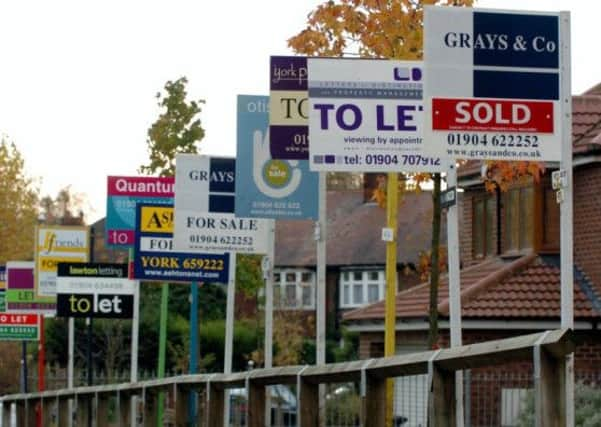The rental generation: Only one in five 25 year-olds now own their homes


A study for the Local Government Association (LGA) found there had also been an 88 per cent drop in the number of social rented homes since 1995/96.
The LGA called for ministers to give councils greater powers to boost house building and take steps to ensure an increase in the number of suitable properties available for older residents.
Advertisement
Hide AdAdvertisement
Hide AdThe analysis, carried out by estate agents Savills, found 46 per cent of 25-year-olds owned their own home 20 years ago but that proportion is now 20 per cent.
LGA housing spokesman Martin Tett said: “Our figures show just how wide the generational home ownership gap is in this country. A shortage of houses is a top concern for people as homes are too often unavailable, unaffordable and not appropriate for the different needs in our communities.
“The housing crisis is complex and is forcing difficult choices on families, distorting places and hampering growth. But there is a huge opportunity, as investment in building the right homes in the right places has massive wider benefits for people and places.
“There is no silver bullet and everyone must come together to meet the diverse housing needs in our villages, towns and cities.”
Advertisement
Hide AdAdvertisement
Hide AdIn August, it was reported that sharp drops in ownership in Yorkshire’s biggest cities, Leeds and Sheffield, have seen West and South Yorkshire experience double digit falls since their early 2000s peak.
The LGA said the housing white paper due to be published by ministers in January must recognise the role councils can play in ensuring the supply of new homes.
In an indication of the difficulties faced by people trying to save for a deposit to get on the housing ladder, the study showed that private renters now pay 34 per cent of their total household income on rent and social and affordable tenants pay 29 per cent.
Meanwhile home owners pay an average of 18 per cent of total household income on their mortgage. Average house prices are now 7.9 times average earnings, the report said.
Advertisement
Hide AdAdvertisement
Hide AdThe average first-time buyer has an income of £40,000 and a deposit of £25,000 - 62 per cent of gross income.
In London, the typical first-time buyer has an income of £65,000 and a deposit of £85,000 - 131 per cent of income.
The LGA report said: “Many first-time buyers across the country, and in particular in high value areas like London, are therefore dependent on help from the ‘bank of mum and dad’.
“Home ownership for younger generations is increasingly determined by the extent to which their parents benefited from previous housing market booms.”
Advertisement
Hide AdAdvertisement
Hide AdThe LGA also highlighted the need to act to provide housing for an ageing population.
Between 2008 and 2039, 74 per cent of projected household growth will be made up of households with someone aged 65 or older.
A Department for Communities and Local Government spokesman said: “We’ve halted the decline in home ownership, with the number of first-time buyers up nearly 60 per cent, and over 335,000 households helped into home ownership through Government-backed schemes since 2010. We’ve also set out the most ambitious vision for housing of any Government since the 1970s, investing £9.4 billion over the course of this Parliament.”